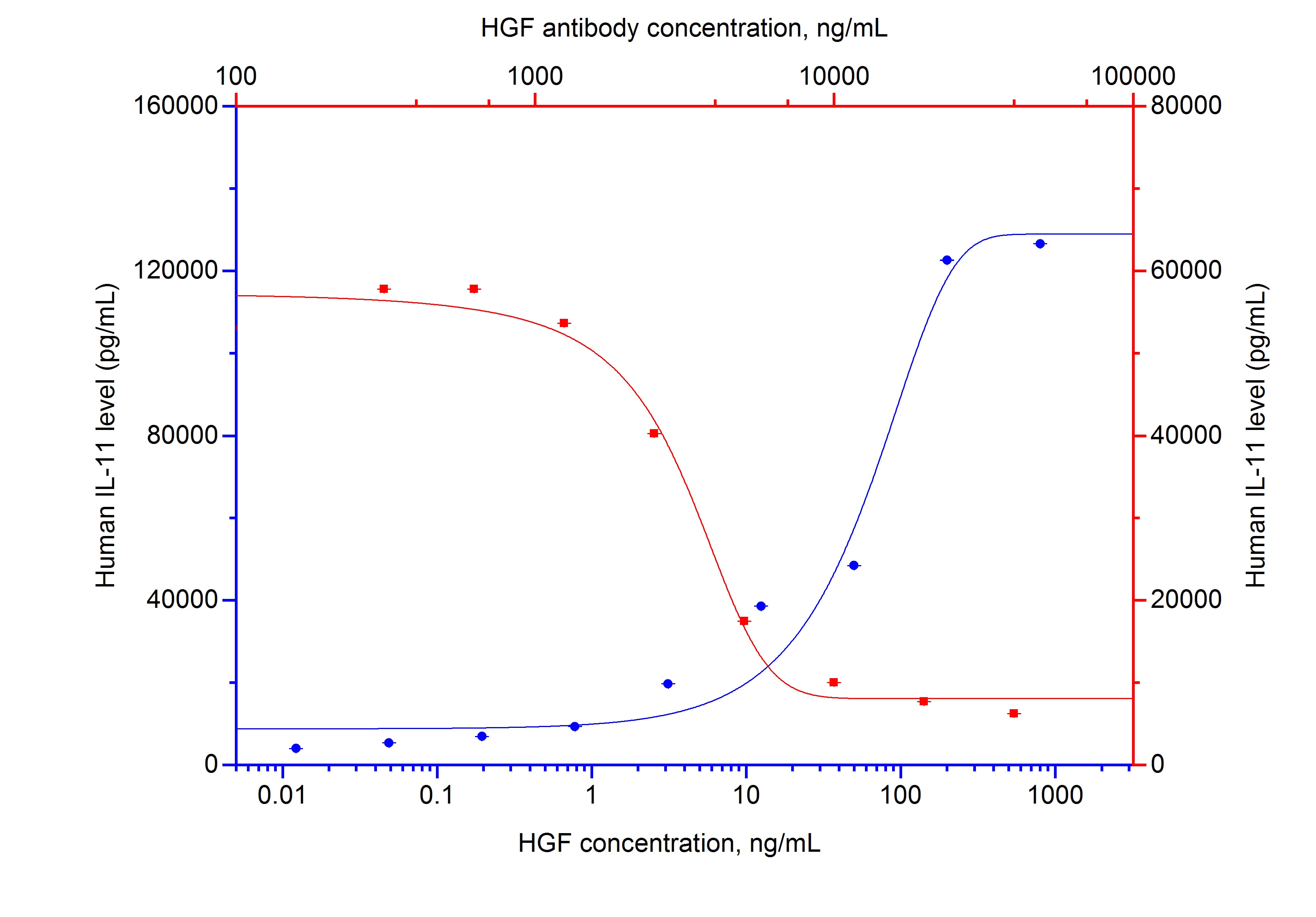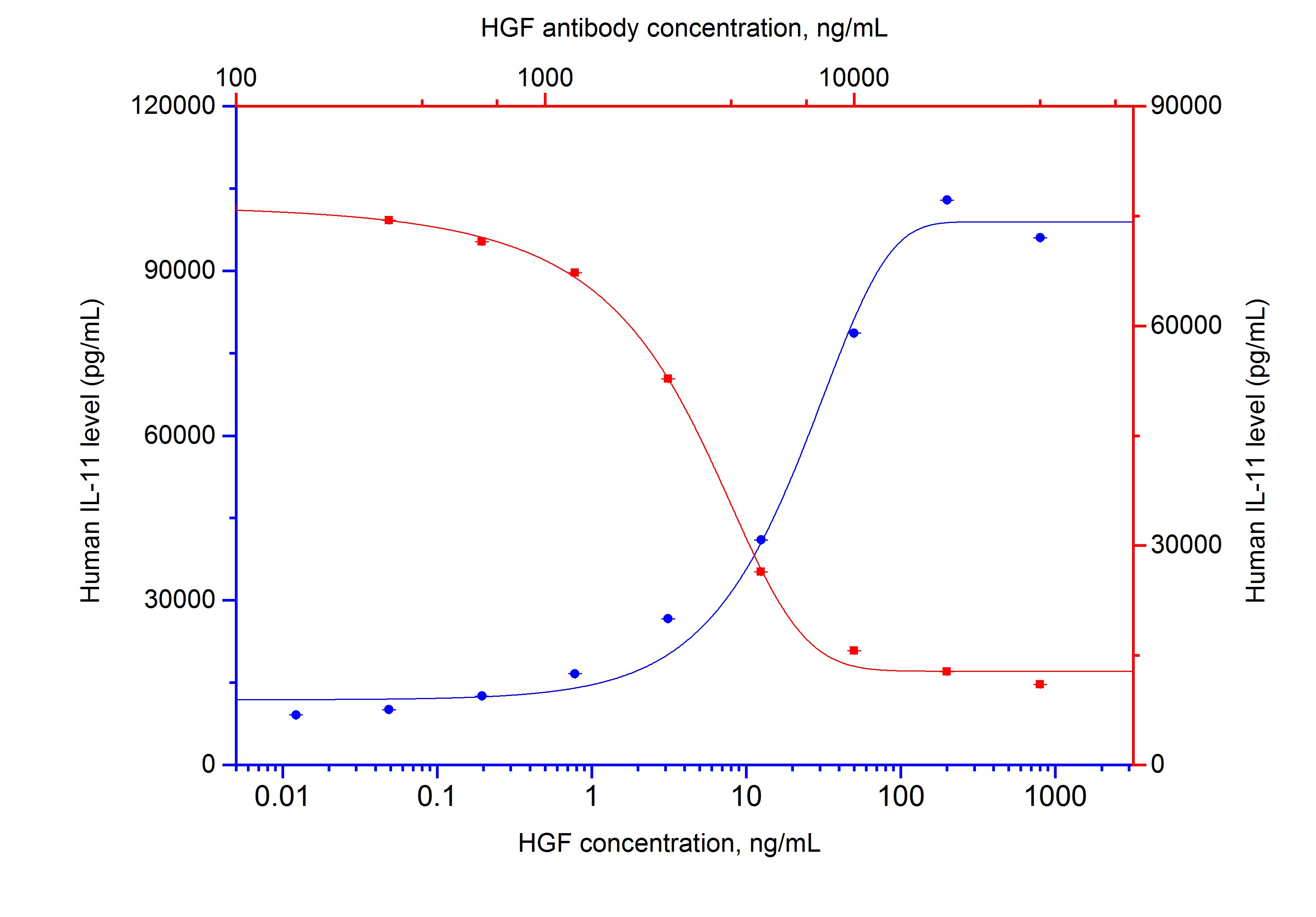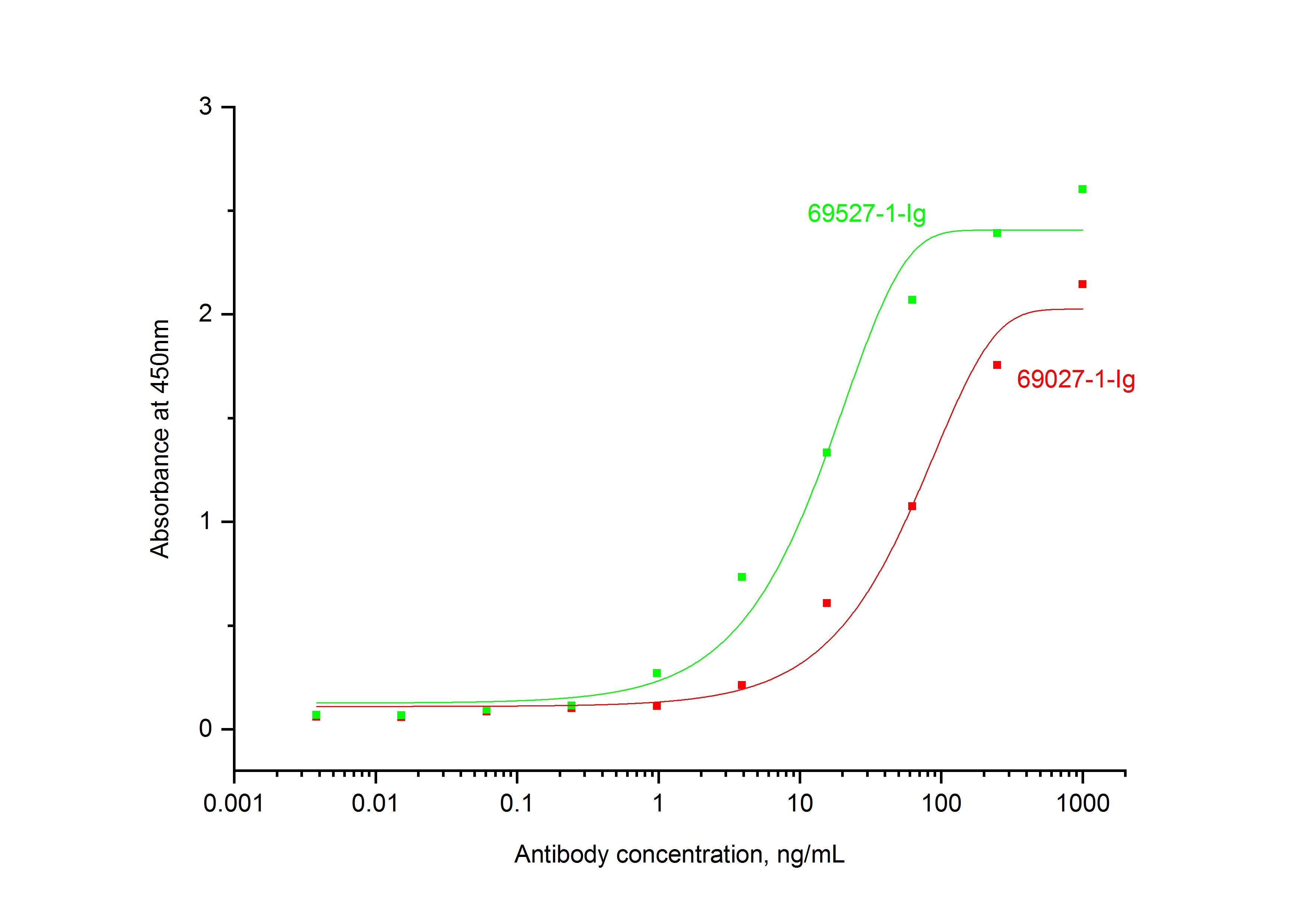Validation Data Gallery
| Neutralization |
Product Information
69027-1-Ig targets NeutraKine®HGF in ELISA, Neutralization applications and shows reactivity with Human samples.
| Tested Reactivity | Human |
| Host / Isotype | Mouse / IgG1 |
| Class | Monoclonal |
| Type | Antibody |
| Immunogen |
RecombinantProtein 相同性解析による交差性が予測される生物種 |
| Full Name | hepatocyte growth factor (hepapoietin A; scatter factor) |
| Gene Symbol | HGF |
| Gene ID (NCBI) | 3082 |
| RRID | AB_2923688 |
| Conjugate | Unconjugated |
| Form | |
| Form | Lyophilized Powder |
| Purification Method | Protein G purification |
| UNIPROT ID | P14210 |
| Storage Buffer | Sterile PBS{{ptg:BufferTemp}}7.4 |
| Endotoxin | <0.1 EU/μg |
| Reconstitution | This product was lyophilized from a 0.2 μm filtered solution in PBS. Reconstitute at 1.0 mg/mL in sterile H2O before use. |
| Stability and Storage | Lyophilized antibodies are stable for 1 year from the date of receipt if stored between (-20°C) and (-80°C). Upon reconstitution we recommend that the solution can be stored at (4°C) for short term or at (-20°C) to (-80°C) for long term. Repeated freeze thaw cycles should be avoided with reconstituted products. |
Background Information
Hepatocyte growth factor (HGF) is the most potent mitogen of mature hepatocytes in primary culture. HGF is derived from a biologically inactive single chain precursor of 728 amino acids (pro-HGF) localized mostly on the cell surface and in the extracellular matrix. The mature form produced following proteolytic cleavage is composed of a 69-kDa α-subunit (containing four kringle domains) and the 34 kDa β-subunit, similar to the catalytic domain of serine proteases, but with amino acid substitutions in the active site. HGF is a pleiotropic cytokine which exerts a variety of effects on several cells, being involved in the regulation of many biological processes, such as inflammation, tissue repair, morphogenesis, angiogenesis, tumour propagation, immunomodulation of viral infections and cardio-metabolic activities.
This antibody is used to neutralize the bioactivity of HGF.



